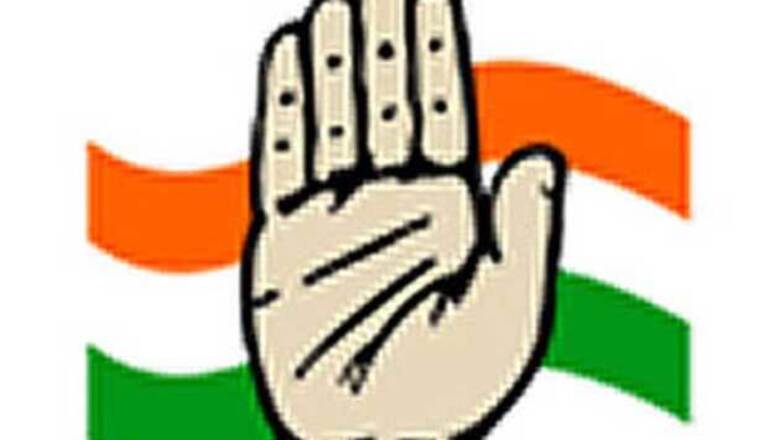
views
New Delhi: The Indian National Congress (INC) is the first and oldest national party that was involved in the fight for country's freedom. It has had its ups and downs over the years. An attempt is made to see all aspects of the party from a layman's perspective in terms of its strength, weakness, and opportunities for future and the threat it faces from within and outside. The focus is on upright analysis that is devoid of any bias or motive.
Strengths:
1. Historic Indian National Congress (INC) connected with nation's freedom struggle.
2. Party attached with name of father of nation, 'Gandhi'.
3. Stalwarts were with the party during Independence movement.
4. India's freedom movement was an inspiration elsewhere.
5. Turned into people's movement during freedom struggle.
6. Government launched planned economy through 5 year plans.
7. Nehru-Gandhi family is reckoned first family; high command.
8. Mainly through efforts of first family elections are won; candidates' efforts count very little
9. Unspoken formula; Family wins elections, hires people for portfolios and keeps firm control on government.
10. First family works very hard during elections to bring victory to party; without them it is close to zero.
11. Post elections, family hires/ selects persons, including the PM's post.
12. 'Family is Party and Party is Family' to some extent is true.
13. Selection and campaigning done by family even for state elections.
14. Selection of leader in state, running government controlled by the family.
15. Media as well as even Opposition parties maintain respectable' distance with family. Both are in perpetual 'awe' as if they are royalty.
16. Benign dictatorship in running party and government through remote control
17. Unlike other parties very little indiscipline in INC.
Weakness:
1. INC has run country for over half a century; strong perception among people nothing much has changed under its rule.
2. Perceived as a 'dynasty' culture with power concentrated with one family.
3. Used the 'Gandhi' family to its advantage as nowhere connected with father of nation's name. Confusion is an advantage used to hilt especially abroad.
4. Lack of democratic norms and high command culture has spawned sycophancy culture.
5. Lack of opportunity for others to grow, especially youngsters.
6. As against democratic norms, top position always reserved as inheritor for Nehru-Gandhi family. Sycophants maneuver this and silently acceded to by the family.
7. There's no healthy democratic discussion bordering disagreements; consensus method adopted for decision-making.
8. Inner party democracy virtually non-existent.
9. All top appointments political / government are made by first family, hence promoting 'Ji huzoor/ saheba' culture.
10. Limited scope for emergence of strong leaders as dissent is not much tolerated/ encouraged.
11. Disenchantment of people will lead to gradual waning of family name.
12. Family's secrets, business deals come out in the open due to stronger opposition and some efforts by media weakening the party.
13. Inability to lead a coalition party was evident. It could not provide strong leadership at the Centre.
14. State governments have more or less become pawns of the Centre as there's strong control from Centre.
15. Often accused of using Muslim votes to come to power.
16. Not conducting an honest enquiry on Sikh massacre has come to haunt INC often with suspected leaders still at large.
17. Absence of proactive administration to bring lasting justice to victims on Bhopal gas leak tragedy have come to haunt the party.
18. There's a perception Cong hasn't been keen on bringing black money stashed outside.
Opportunity:
1. Great opportunity for party to tap the potential of youth.
2. Only party still known in nook and corner of the country, hence easier to rebuild with dedicated efforts.
3. People are still in awe of first family; with honest efforts this can be converted into votes. However the last decade has been a wasted opportunity
4. Party often projects itself as one with 'secular' outlook, which is debatable and this leads to suspicion that it is meant only for vote-catching.
5. If the party allows free flow of fresh ideas and thoughts, it can still capture people's imagination and make a difference.
6. Must correct the perception that only one family can run the country.
7. Rejuvenation does not happen in closed 'shibirs' and conclaves but in an atmosphere of frank and openness.
Threat:
1. The Grand Old Party is in danger of losing its eminence in Indian politics.
2. Disillusionment has gradually set in and there could be mass migration to other parties from younger workers.
3. The old school of thought pervades stifling new ideas. This will be a deterrent for Party's future growth.
4. People will disregard history and voter disenchantment is bound to hurt the Party.
5. Lack of leadership, tolerance to corruption has brought in voter disenchantment and skepticism.
6. Gradual loss of power in states proves disenchantment and lack of governance in states as well.
7. Sycophancy will reduce the party to a has-been of mediocre.
8. With advent of new parties like AAP, there's a danger of Party being reduced to a nonentity.
9. The thought salvation lies in being led by only first family shows diffidence in ability of its members.
(The writer is a Mysore based Cricket writer and a commentator on current affairs)



















Comments
0 comment